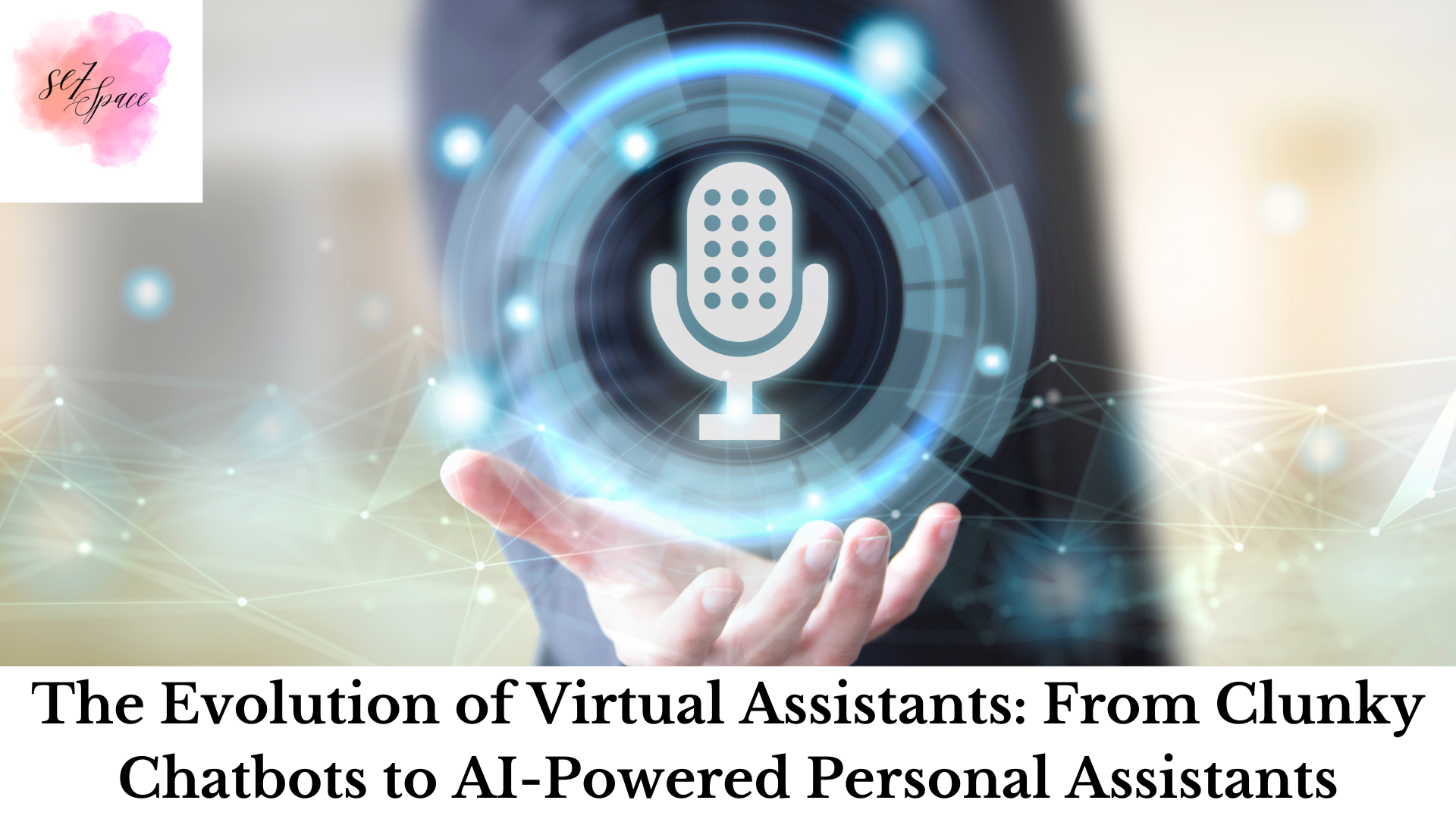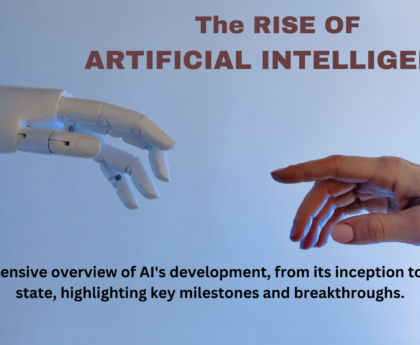In the ever-evolving landscape of technology, voice technology & virtual assistants have emerged as transformative tools that enhance human-computer interaction. From humble beginnings as clunky chatbots to the sophisticated AI-powered personal assistants we have today, virtual assistants have come a long way. This blog post takes you on a fascinating journey through the evolution of virtual assistants, highlighting key milestones and the impact of their advancement on various industries and our everyday lives.
Unveiling the Past: The Rise of Early Chatbots and Their Limitations
Before the era of voice technology and AI, chatbots were at the forefront of virtual assistance. Early chatbots were simple, rule-based programs that could respond to predefined commands or keywords. Though innovative at the time, they had limitations, such as their inability to understand natural language and provide personalized assistance.
Voice Technology Revolution: Empowering Virtual Assistants to New Heights
The introduction of voice recognition technology revolutionized the virtual assistant landscape. Voice technology enabled users to interact with virtual assistants using natural language, making the experience more intuitive and user-friendly. Through advancements in speech recognition algorithms, virtual assistants became capable of understanding context and contextually-driven conversations.
From Task Execution to Personalized Mastery: Virtual Assistants Step Up
As virtual assistants progressed, they shifted from merely executing tasks to providing personalized assistance. This transition was made possible by the integration of machine learning and natural language processing (NLP) technologies. With NLP, virtual assistants could comprehend user intent, leading to more personalized and contextually relevant responses.
Virtual Assistants in the Smart Age: Redefining Connected Living
The advent of the Internet of Things (IoT) brought about a new frontier for virtual assistants. They became an integral part of smart devices, connecting our homes and transforming the way we interact with technology. Today, virtual assistants can control smart appliances, adjust room temperatures, and even set reminders based on our daily routines.
Key Phrases: Internet of Things, smart devices, connected homes, smart appliances.
The Ascendancy of AI-Powered Personal Assistants: Changing the Game
Artificial intelligence marked a significant turning point in virtual assistant evolution. AI-powered personal assistants, backed by deep learning and neural networks, unlocked new levels of adaptability and intelligence. These assistants can learn from user behavior and preferences, providing tailored experiences that align with individual needs.
Confronting Ethical Frontiers: Balancing Privacy and Progress
With the increasing sophistication of virtual assistants, ethical considerations have arisen. One primary concern is the preservation of user privacy and data security. Companies must strike a balance between leveraging user data to enhance virtual assistant capabilities and protecting sensitive information from breaches.
Real-World Applications: How AI-Powered Virtual Assistants Shape Industries
AI-powered virtual assistants have revolutionized various industries. In healthcare, they aid in diagnosing diseases and providing personalized patient care. In customer service, they enhance customer interactions and streamline support processes. In the financial sector, they offer tailored financial advice and streamline banking operations.
Pioneering the Future: What’s Next for Virtual Assistants?
Looking ahead, the future of virtual assistants is promising. Predictions indicate a seamless integration of virtual assistants into augmented reality and mixed reality environments. Moreover, ongoing research aims to address challenges like bias in AI algorithms to ensure more inclusive and responsible virtual assistants.
Wrapping Up the Virtual Assistant Odyssey: Transforming Technology and Beyond
The evolution of virtual assistants has been a journey of innovation and progress. From clunky chatbots to AI-powered personal helpers, these virtual companions have transformed the way we interact with technology. As we embrace the future, it is crucial to continue fostering responsible development and ethical practices to ensure a seamless and empowering virtual assistant experience.
In conclusion, virtual assistants have evolved from simple chatbots to sophisticated AI-powered personal assistants, enriching our lives and reshaping technology across various sectors. With each advancement, they have become more intuitive, personalized, and capable of assisting us in our daily tasks. As we continue on this exciting journey, let us embrace the potential of virtual assistants while prioritizing user privacy, data security, and ethical considerations, ensuring a brighter and more empowering future for virtual assistants in the years to come.





